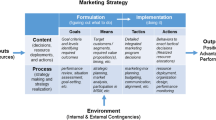Abstract
Just as Michael Porter's “five forces” provided a practical analytical tool for describing the forces that shape competitive strategy, so business ethicists ought to provide business leaders with a workable framework for understanding the sources of ethical obligations. The forces that shape competitive strategy vary according to time and industry, but are anchored in an ultimate criteria of profitability. Similarily, ethics can use a set of analytical categories that identify the relevant forces to business ethics on the basis of relationality.
This paper first argues that relationality based on naturalism is the primary, plausible value for ethics. Second, it adapts a tripartite dialectic from scholars William Frederick and Michael Novak to describe the relational categories with which business must contend. Third, it uses these forces in a way similar to Porter's competitive forces to offer an analytical language familiar to managers in order to characterize business ethics.
Similar content being viewed by others
References
Arlow, Peter and Thomas Ulrich: 1988, ‘A Longitudinal Study of Business School Graduates Assessments of Buisness Ethics’, Journal of Business Ethics 7, 295–312.
Boatright, John R.: 1994, ‘What's So Special About Shareholders?’, Business Ethics Quarterly 4, 393–407.
Deming, W. Edwards: 1982, Out of the Crisis (MIT Press, Cambridge, Massachusetts).
Donaldson, Thomas and Thomas Dunfee: 1994, ‘Toward a Unified Conception of Business Ethics: Integrated Social Contract Theory’, Academy of Management Review 19, 252–284.
Dorrien, Gary: 1993, The Neoconservative Mind: Politics, Culture, and the War of Ideology (Temple University Press, Philadelphia).
Frederick, William: 1992, ‘Anchoring Values in Nature: Toward a Theory of Business Values’, Business Ethics Quarterly 2, 283–303.
Frederick, William: 1995, Values, Nature, and Culture in the American Corporation (Oxford University Press, New York).
Freeman, R. Edward: 1984, Strategic Management: A Stakeholder Approach (Pittman, Boston).
Gilbert, Daniel R. Jr.: The Twilight of Corporate Strategy: A Compartive Ethical Critique (Oxford University Press, New York).
Harris, Errol: 1988, Formal, Transcenental, and Dialectical Logic (SUNY Press, Albany, New York).
Harris, Errol: 1992, Cosmos & Theos: Ethical and Theological Implications of the Anthropic Cosmological Principle (Humanities Press, Atlantic Highlands, New Jersey).
Hauerwas, Stanley: 1983, The Peaceable Kingdom: A Primer in Christian Ethics (Notre Dame Press, Notre Dame, Indiana).
Hayek, F. A.: 1988, The Fatal Conceit (University of Chicago Press, Chicago).
John Paul II: 1991, Centesimus Annus (Orgins, Washington, DC).
Juran, Joseph: 1979, Managerial Breakthrough: A New Conception of the Managers Job (McGraw-Hill, New York).
MacIntyre, Alasdair: 1981, After Virtue (Notre Dame Press, Notre Dame, Indiana).
McMahon, Thomas F. c.s.v.: 1989, ‘Religion and Business: Concepts and Data’, Chicago Studies 3.
Novak, Michael: 1993, The Catholic Ethic and the Spirit of Capitalism (The Free Press, New York).
Perry, Michael: 1990, Politics, Morality and Human Rights (Oxford University Press, New York).
Porter, Michael: 1975, Note on the Structural Analysis of Industries, Havard Business School Cases (Harvard Business School, Cambridge, Massachusetts).
Solomon, Robert: 1993, Ethics and Excellence: Cooperation and Integrity in Business (Oxford University Press, New York).
Sun-Tzu (Samuel B. Griffith, translator): 1991, The Art of War (Oxford University Press, New York).
Werhane, Patricia: 1985, Persons, Rights & Corporations (Prentice-Hall, Englewood Cliffs, New Jersey).
Wheatley, Margaret J.: 1992, Leadership and the New Science: Learning about Organization from an Orderly Universe (Berrett-Kochler, San Francisco).
Author information
Authors and Affiliations
Rights and permissions
About this article
Cite this article
Fort, T.L. How Relationality Shapes Business and Its Ethics. Journal of Business Ethics 16, 1381–1391 (1997). https://doi.org/10.1023/A:1005726907404
Issue Date:
DOI: https://doi.org/10.1023/A:1005726907404




